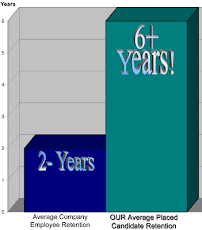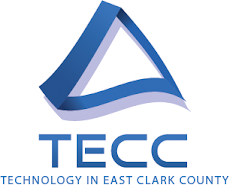Saturday
Three Ways to Win the Talent Market
Three Ways to Win the Global Talent Market
"The world is your talent pool. We've been hearing that message ever since corporations started chattering about globalization. The real issue is, how well do you fish in that pool?
The difference between strategically fishing and merely flailing the waters of an increasingly diverse talent pool was the top issue at the recent Hidden Brain Drain Summit. Held in New York, the fourth annual colloquium brought together representatives from more than 50 organizations employing more than four million people in 152 countries around the world. Members range from American Express, Ernst & Young, General Electric, Google, Intel, and Pfizer to theInternational Monetary Fund, the Cleveland Clinic, and the CIA. Working as a community of peers, the Hidden Brain Drain Task Force spearheads private-sector initiatives that nurture female and multicultural talent. Its research and collaborative action have developed more than 70 models of best practices.
Diversity was on everyone's mind for a very simple reason: A major demographic shift is metamorphosing every marketplace into a global microcosm. In the United States, Hispanic, African-American and Asian communities now comprise one-third of the population and account for 85 percent of the population growth. In the United Kingdom, ethnic minorities comprise 10 percent of the population and account for 50 percent of the overall population growth. And developing countries represent more than half of the global GDP and are projected to grow at nearly twice the rate of the United States and the European Union. As jobs continue to hemorrhage in developed nations, they're being picked up inBRIC (Brazil, Russia, India and China) countries and frontier economies. Not only that, more and more often they're being picked up by women.
These findings have profound implications for attracting, developing, and retaining high-performers. Task Force members universally agree that "one size fits all" talent management not only is outmoded but risks putting employers permanently behind the curve. Diversity and inclusion (D&I) agendas, customized for different groups of employees, are no longer a "nice to have" act of altruism but a business-driven prerequisite for market success.
What will it take to lure the right fish into your net? Here's what three smart companies are doing:
• Focus on women. Faced with an exodus of mid-level female technologists, Intel responded with a series of career development workshops aimed at helping women better identify, request and secure more fulfilling work assignments. Why the female focus? "As a global company selling product around the world, minimally put, we can't remain successful if we don't leverage the full talent pool that is available," says Rosalind L. Hudnell, corporate director of diversity. "We're doing these workshops for all our employees but we're making especially sure they meet the needs of our women."
• Nurture global networks. Mentoring and coaching only go so far in exposing senior leaders to the diverse talent pipeline within a global enterprise and vice versa. Cisco's Inclusive Advocacy Program paired 30 of the company's highest-potential talent from six different functions scattered among 16 locations around the world with an executive advocate in different geographies and functions and, often, of a different ethnicity and gender. The result: Meaningful global connections that never existed before.
• Spread the flex. Flexible work options are no longer an issue limited to working mothers. Research shows that nearly 90 percent of both Baby Boomers and Gen Y workers put a premium on flexible work arrangements, even choosing employees based on their flex offerings. Citi's Alternative Workplace Strategy allows employees to rotate the days in which they come to the office. It's a plus for time-stressed workers and enables Citi to save money by paring its office space. Launched in New York, London and Miami, AWS will roll out globally this year."
-Sylvia Ann Hewlett is an economist and the founding president of the Center for Work-Life Policy. She is the author of eight books, including Top Talent.
"The world is your talent pool. We've been hearing that message ever since corporations started chattering about globalization. The real issue is, how well do you fish in that pool?
The difference between strategically fishing and merely flailing the waters of an increasingly diverse talent pool was the top issue at the recent Hidden Brain Drain Summit. Held in New York, the fourth annual colloquium brought together representatives from more than 50 organizations employing more than four million people in 152 countries around the world. Members range from American Express, Ernst & Young, General Electric, Google, Intel, and Pfizer to theInternational Monetary Fund, the Cleveland Clinic, and the CIA. Working as a community of peers, the Hidden Brain Drain Task Force spearheads private-sector initiatives that nurture female and multicultural talent. Its research and collaborative action have developed more than 70 models of best practices.
Diversity was on everyone's mind for a very simple reason: A major demographic shift is metamorphosing every marketplace into a global microcosm. In the United States, Hispanic, African-American and Asian communities now comprise one-third of the population and account for 85 percent of the population growth. In the United Kingdom, ethnic minorities comprise 10 percent of the population and account for 50 percent of the overall population growth. And developing countries represent more than half of the global GDP and are projected to grow at nearly twice the rate of the United States and the European Union. As jobs continue to hemorrhage in developed nations, they're being picked up inBRIC (Brazil, Russia, India and China) countries and frontier economies. Not only that, more and more often they're being picked up by women.
These findings have profound implications for attracting, developing, and retaining high-performers. Task Force members universally agree that "one size fits all" talent management not only is outmoded but risks putting employers permanently behind the curve. Diversity and inclusion (D&I) agendas, customized for different groups of employees, are no longer a "nice to have" act of altruism but a business-driven prerequisite for market success.
What will it take to lure the right fish into your net? Here's what three smart companies are doing:
• Focus on women. Faced with an exodus of mid-level female technologists, Intel responded with a series of career development workshops aimed at helping women better identify, request and secure more fulfilling work assignments. Why the female focus? "As a global company selling product around the world, minimally put, we can't remain successful if we don't leverage the full talent pool that is available," says Rosalind L. Hudnell, corporate director of diversity. "We're doing these workshops for all our employees but we're making especially sure they meet the needs of our women."
• Nurture global networks. Mentoring and coaching only go so far in exposing senior leaders to the diverse talent pipeline within a global enterprise and vice versa. Cisco's Inclusive Advocacy Program paired 30 of the company's highest-potential talent from six different functions scattered among 16 locations around the world with an executive advocate in different geographies and functions and, often, of a different ethnicity and gender. The result: Meaningful global connections that never existed before.
• Spread the flex. Flexible work options are no longer an issue limited to working mothers. Research shows that nearly 90 percent of both Baby Boomers and Gen Y workers put a premium on flexible work arrangements, even choosing employees based on their flex offerings. Citi's Alternative Workplace Strategy allows employees to rotate the days in which they come to the office. It's a plus for time-stressed workers and enables Citi to save money by paring its office space. Launched in New York, London and Miami, AWS will roll out globally this year."
-Sylvia Ann Hewlett is an economist and the founding president of the Center for Work-Life Policy. She is the author of eight books, including Top Talent.
Subscribe to:
Post Comments (Atom)














No comments:
Post a Comment